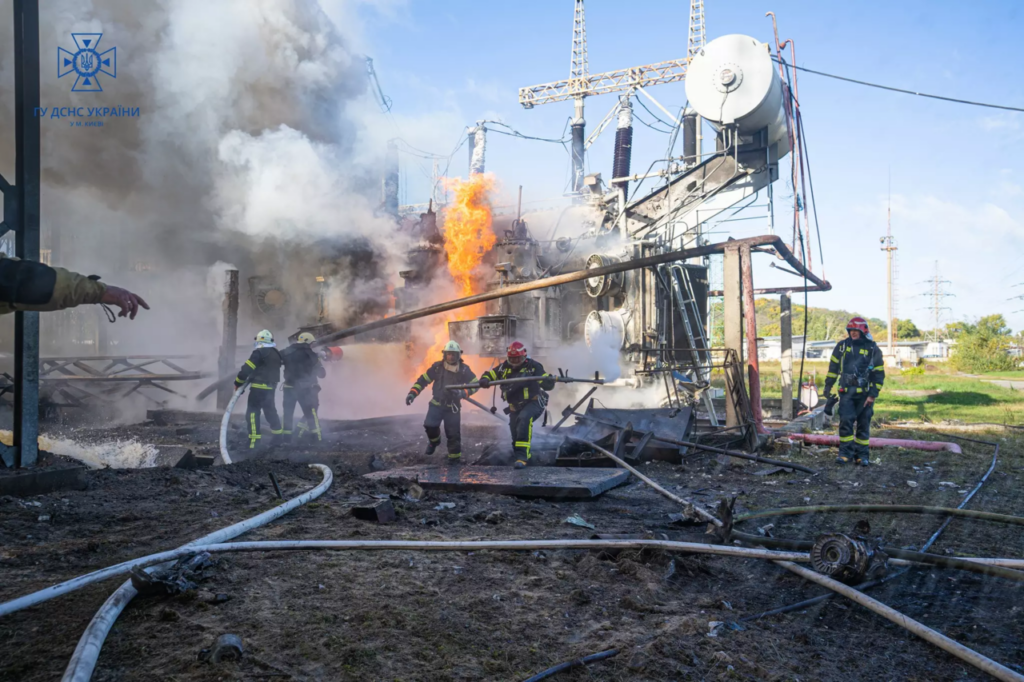Reuters: Russia’s weekend strikes badly hit Ukraine’s biggest private power producer
As winter descends on Ukraine with the first snow blanketing Kyiv, Russia has intensified its assault on the country's power infrastructure.


Russia’s weekend missile strikes hit three of the five working thermal plants owned by Ukrainian power giant DTEK and one of them is still offline, an industry source said, illustrating the severity of the latest blow to the national grid.
Reuters reports that DTEK, which is Ukraine’s largest private power producer and which provided a quarter of the country’s electricity needs before Moscow’s February 2022 invasion, has been hammered by a campaign of aerial assaults that Russia renewed in March.
After a pause in major strikes on the grid, Russia fired a salvo of more than 200 missiles and drones on Sunday 17 November, reigniting concern about the already hobbled energy system as winter sets in. The first snow fell in Kyiv on Thursday 21 November.
Disclosing details of the damage to DTEK for the first time, the source said that three power stations were damaged, one was still completely offline and it was unclear how long it would take to fully repair them.
The source said the two facilities that were partially damaged had resumed partial power generation.
President Volodymyr Zelenskyy said on 17 November there had been hits to energy infrastructure but did not elaborate. Kyiv often withholds information about the scale of damage to prevent Russia using that data to better tailor its future assaults.
One energy official who declined to be named confirmed to Reuters that power generating facilities were attacked and damaged on 17 November and said distribution stations were also targeted.
Energy officials announced on 18 November there would be hours-long rolling blackouts across the country for the first time in months, bringing back memories of the first winter of the war when water and power outages sometimes lasted for days.
Russia aims to create sense of panic
Ukrainian officials say that Russia has accumulated hundreds of missiles to conduct more attacks, but have cautioned against doom-laden forecasts that they say play into Russia’s hands and create a sense of panic.
The source declined to disclose numbers concerning the loss in capacity, saying they were too sensitive.
Maxim Timchenko, DTEK’s CEO, has said “severe damage” was caused on Sunday and appealed to Ukraine’s Western allies to supply more air defences to prevent more destruction.
Prior to Sunday’s attack, DTEK had restored about half the capacity it had before strikes began in March, the company has said previously.
DTEK has six thermal power plants on Ukrainian-held territory. But one of them, in the embattled eastern town of Kurakhove that Russian troops are closing in on, has been dismantled so the parts can be used to repair other facilities.
Thermal stations, fuelled by coal and gas, traditionally account for a third of the country’s overall electricity needs, the core of which is provided by nine units at three nuclear power plants in territory controlled by Kyiv.
Related:
- Russia targets Ukraine’s energy system with over 1000 missiles since 2022
- Germany completes fourth training round for Ukrainian troops on Patriot air defense systems
- Estonian PM: EU must help Ukraine to survive upcoming winter as Russian prepares attacks on power systems
- Nordic-Baltic countries to provide Ukraine with joint energy package before winter
- Energy Community: Ukrenergo certification as independent operator won’t impact winter electricity imports
- Ukrainian PM Shmyhal: Ukraine needs support as it prepares for harsh winter amid Russian attacks on critical infrastructure



